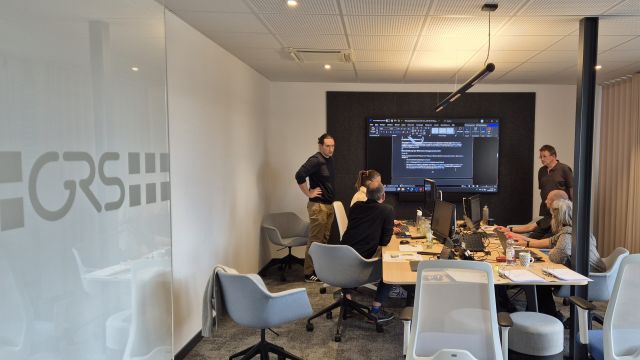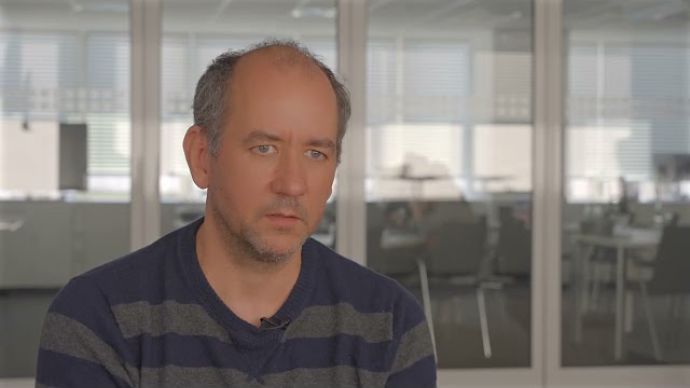
Our Emergency Centre
The Emergency Centre is part of the emergency organisation of the Federal Ministry for the Environment and the Federal Radiological Situation Centre (RLZ).
Support of the Federal Radiological Situation Centre
Together with other organisations, GRS supports the Radiological Situation Centre with its emergency organisation. The Federal Radiological Situation Centre convenes under the direction of the Federal Ministry for the Environment as soon as a supraregional emergency occurs.
Tasks in case of an emergency
In the event of an emergency, the GRS experts will collect information on the accident, evaluate it and draw up forecasts on possible further developments. The core of the Emergency Centre is formed by an emergency staff team consisting of experts from different fields. The emergency staff team is composed of a total of five individual teams:
• the management team,
• the systems engineering team,
• the analysis team,
• the radiation protection team, and
• the communication team.
In the event of an accident, the systems engineering team will analyse the current status of the affected plant. In the process, the failed and the still available safety systems and intervention options are determined.
Based on this, the analysis team examines the possible further behaviour of the plant on the basis of a large number of simulation results regarding conceivable accident scenarios. Simulation codes developed by GRS within the scope of its reactor safety research play an essential role in the preparation of prognoses on possible further developments. For example, the experts of the emergency staff team can draw on an extensive library of precalculated sequences for a wide variety of accident scenarios and different reactor types.
The radiation protection team analyses the radiological situation inside the plant and - if necessary - the release of radioactive substances into the environment. To improve the assessment of the situation inside the plant and of further developments, available data of measurements in the vicinity of the plant are also used and combined with plant-specific information.
The management team coordinates the exchange between the individual teams, brings together their results, and communicates with the other agencies involved. The results are regularly compiled and submitted to the Federal Ministry for the Environment in the form of situation reports.
The tasks of the communication team primarily include providing generally comprehensible information about the event, for example on the online platforms where GRS is present, in coordination with the Federal Radiological Situation Centre.

Lessons learnt from the Fukushima accident
After the accident at Fukushima on 11 March 2011, the emergency team of GRS continuously informed the Federal Ministry for the Environment, the media and the general public about the situation at the Japanese plant and the radiological consequences for weeks. Between March and June, GRS prepared more than 200 situation reports for this purpose, which it published first on its website and then on the Fukushima portal. The lessons learnt from what happened at Fukushima provided the impetus for GRS to optimise its emergency organisation and to set up an Emergency Centre at its headquarters in Cologne. The new Emergency Centre became operational in May 2013.